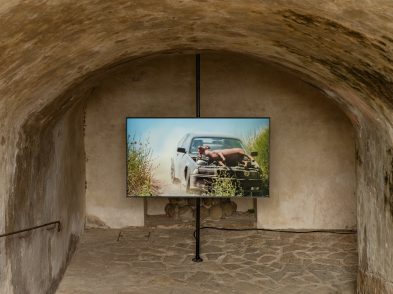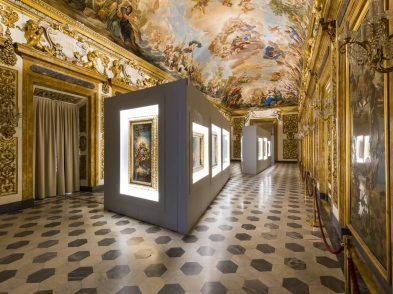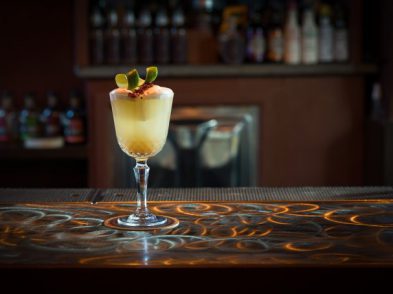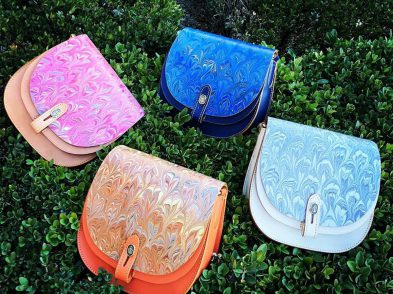Sara Milne took her post as director of the British Institute of Florence in March 2011. As the founder of the London-based company Science and Media, Milne worked with Britain’s Science Museum to tap the commercial potential of its collection and intellectual property. She has a strong commitment to education as well as extensive experience in management and marketing. Milne is no stranger to Italy: she was born in Rome and has lived and worked in Italy at various times throughout her life and career. In January 2012, she will also become Britain’s honorary consul in Florence.
You were born in Rome. How did your parents come to be in Italy?
My parents were musicians. My father, a pianist who trained at the Royal Academy of Music in London and subsequently became a professor there, won a scholarship in the early 1960s to study at the Accademia Chigiana in Siena with maestro Guido Agosti. They lived between Siena and Rome, which is why I was born in Italy.
Do you feel a special bond with Italy?
I returned to England when I was a year old and was educated there. But I had an Italian godfather, and my parents often came back for summer holidays. As a teenager, I visited Lucca and the Garfagnana and have fond memories of these years. In fact, before taking up this post, my only experience of Florence was as a tourist. Curiously, that makes it more interesting because my eyes are wide open. I feel very fresh in my approach to the city.
Tell me something about your background. You were in business in England with a particular interest in science, the media and education.
I have had a broad career spanning marketing, communications and television production. But what I most enjoy is taking on a charity with a strong educational mission and helping it achieve its potential. When I worked at the Science Museum my first job was, coincidentally, running and promoting an exhibition curated by Florence’s History of Science Museum, now the Museo Galileo, about the great engineering works of Leonardo and his contemporaries. Before that, in the 1980s, I was with Benetton, managing agents in the United Kingdom; again, I enjoyed the connection with an Italian company in England. I have spent the past five years travelling all over the world as a museum consultant. That was fascinating but exhausting, and one of the things I sought by coming to Florence was to become entrenched in a community once again.
What is unique about the British Institute of Florence in 2011?
I think of it as the modern-day equivalent of the Grand Tour. Typically, people visit the Institute for about three months. We edit the city for them, and know the places to go and when. When I first walked into the Ferragamo Room at the Institute’s Harold Acton library, I knew that people would be inspired to learn there. We welcome a surprisingly wide range of users and backgrounds, from gap-year students-Kate Middleton, the Duchess of Cambridge, was one and we can’t wait to see her here again-to retired people, from academics passionate about their subjects, to cultural tourists, and a growing number of nationalities. That makes for an exciting peer group.
You referred to ‘an exciting and challenging time’ when you took up your post last March. What are the greatest challenges?
Like all institutions, we have limited resources. Except in its earliest days, it has received no public funding for almost all of its 94-year existence. Generous private donations and revenue from our language courses have helped us to operate, particularly the library and our cultural activities. Partnership with supporters is the relationship we are seeking. We are looking actively at an endowment fund and at private sponsorship directed specifically at our programme. It may take time to happen here, but brands realise the benefit of speaking to customers in the language that they use and through the activities they value.
The British Consulate is about to close after some 550 years in Florence, and you will become the honorary consul on January 1, 2012. Will the Institute’s role change as a result?
When the closure was announced, there was a fear among Florentines that a historic relationship would be undermined. In fact, I believe this change in status will formalise and strengthen the representative role that the Institute has long provided, especially in the city’s cultural life. This is official recognition of the objectives our staff has worked hard to achieve. The reason I was keen to be honorary consul is that I will tap in to the broader Italian network of the British Foreign Office, and the British Council programme of visiting musicians, artists and writers. With the wonderful pool of talent in Florence that we already draw on, our mission to promote Anglo-Italian cultural relations will be reinforced.
How will you enrich cultural exchange between Britain and Italy?
Through new partnerships that showcase the best. In December, for example, we will collaborate with London’s National Portrait Gallery to highlight the BP Portrait Award. The most prestigious annual portrait competition in the world is international in scope, and we’ll work to tell people about it here and encourage entries from Italy. We have been inspired to give this activity its own life in Florence by exploring the theme in lots of directions, in literature as well as art. Former winners will tell us what the prize meant to them, and local experts will explore the genre with us.
I’ve also been in contact with British educators taking a fresh look at how art history is taught in secondary schools, devising a more thematic way that can communicate with young people. I see a lot of potential in an approach that brings the past alive. And if students need to visit Florence, we should offer scholarships, and we’ll need support for that.
A new emphasis on practical involvement is emerging in your courses.
We already work closely with the Charles H. Cecil studios, where I have been fascinated by the technique and science of portraiture. We recently ran a fresco workshop that was very well received. What we do well are short courses and I like the idea of interactivity, so have increasingly organised series of lectures with a hands-on element. Where better than Florence to learn about techniques and materials?
Is it accurate to describe the Institute as promoting Britain’s historical cultural legacy rather than its present-day cultural achievements?
It is interesting to reflect on how culture is interpreted differently in our two countries. In Britain, for instance, it can include fashion and food. The profile of our users is changing, reflecting social and leisure trends and, at the same time, young professional people flood into the city. I am interested in creating a culture lab as a showcase here for new British talent in photography, for instance, and jewellery design. What’s more, Florence has fantastic museums, and with them we can showcase good museum practice that develops this sector through our international partnerships.
Will you bring your experience of marketing to bear on the Institute?
Yes, our strengths like the library, archive and talks need to be publicised more. We are finding out about who uses the Institute to consult them about their interests and provide the programming they want. We have also been looking at our alumni and want to talk to them; we’ve been asking ourselves why people remain so loyal to the Institute when they are here only a short time. I think it is because the experience is very intense and never forgotten. Quite a few of our governors were students. In fact, two got married after meeting here. Like many others, they speak of their time at the Institute with passion and affection.






